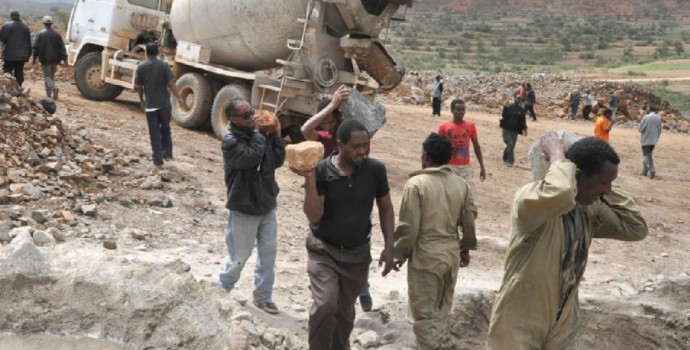More Eritreans filed for asylum in the UK in the year to June than any other nation. They face “systematic, widespread and gross human rights violations” at home, says the UN.
_LRG.jpg)
A recent United Nations report found that “systematic, widespread and gross human rights violations have been and are being committed in Eritrea under the authority of the government”.
Eritreans make up a large number of those fleeing across the Mediterranean to Europe – around 15 per cent of the total reaching Europe’s sea border are from the country.
And the reason commonly cited for the dangerous journey to Europe – Eritrea’s national service, which though legally compulsory for 18 months, in reality amounts to “indefinite enrollment in the military where conscripts are used as “forced labour”, according to the UN.
he UN report, which has been rejected by the Eritrean government as an effort to undermine the government, describes a country where people live in fear and officials and security forces carry out gross human rights violations with impunity.
Extra-judicial killings, torture, enforced disappearances and arbitrary arrest all take place, the report says.

A former Eritrean interrogator told the UN: “Torture includes beating with whips, plastic tubes and electric sticks, standing [under the sun] on a very hot sunny day at noon, tying the hands and feet like the figure of eight, tying the hands and feet backwards (known as “helicopter”), tying to trees, forcing the head down into a container with very cold water, beating the soles of the feet and the palms.
UK’s tougher asylum controls for Eritreans
The UK Government has been accused of closing the door to thousands of asylum-seekers from Eritrea in an attempt to hit its discredited immigration target.
In March, the Government announced a new policy towards Eritrean asylum-seekers, saying that conscription is no longer automatic grounds for granting asylum because Eritrea has stopped the practice of indefinite military service.
However, Human Rights Watch (HRW) has criticised the UK’s policy, saying it is based “almost exclusively” on a “discredited” Danish Government report.
The Danish document released this year claimed that Eritreans returning to their home country would not face punishment providing they signed a “letter of apology”. It also said that Eritrea had stopped the practice of indefinite military service.

HRW said there is “no evidence” that the Eritrean Government have made these changes on the ground. “The reliance on a weak and discredited report suggests the Home Office is more interested in keeping asylum seekers out than in protecting people in danger,” said Senior Researcher Gerry Simpson.
‘Africa’s North Korea’: Why do people flee Eritrea? – Channel 4 News.
